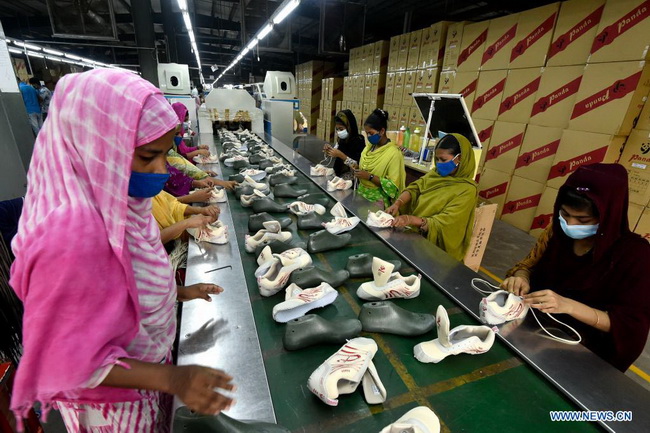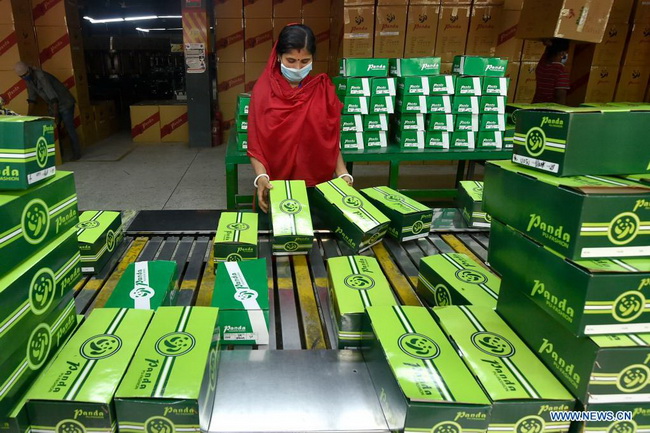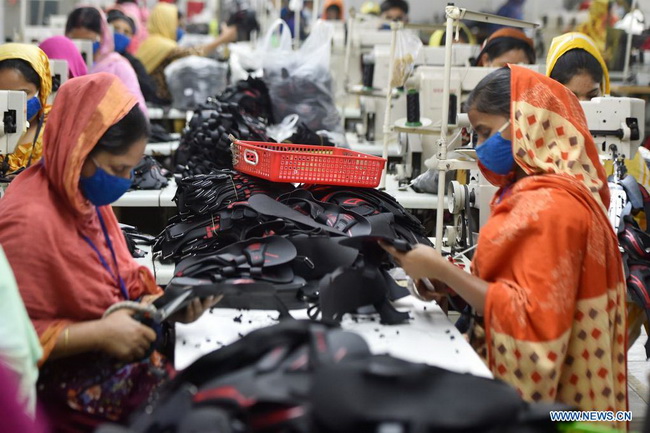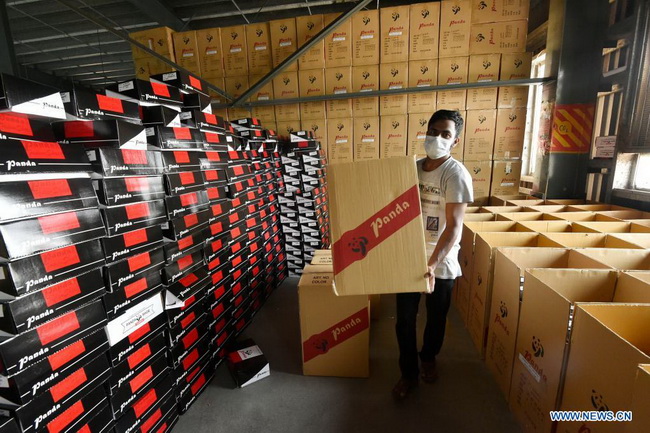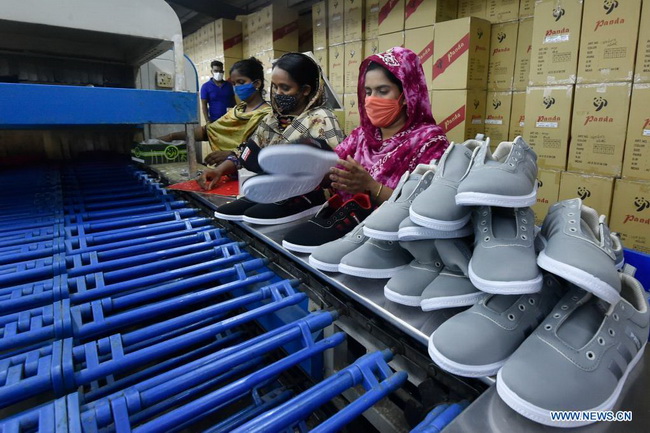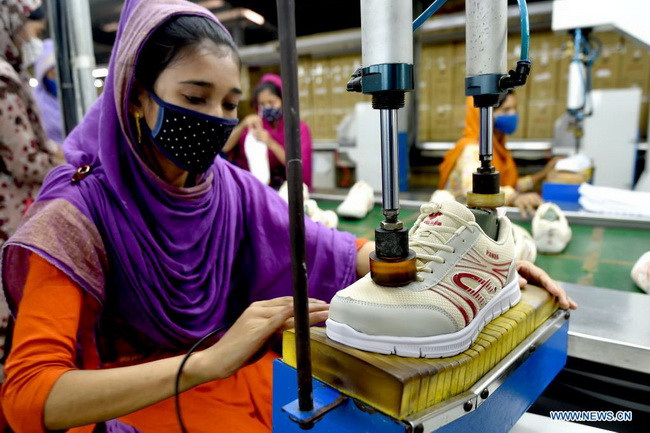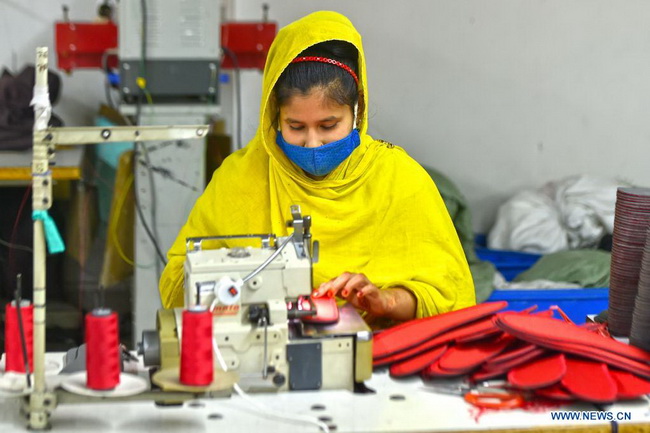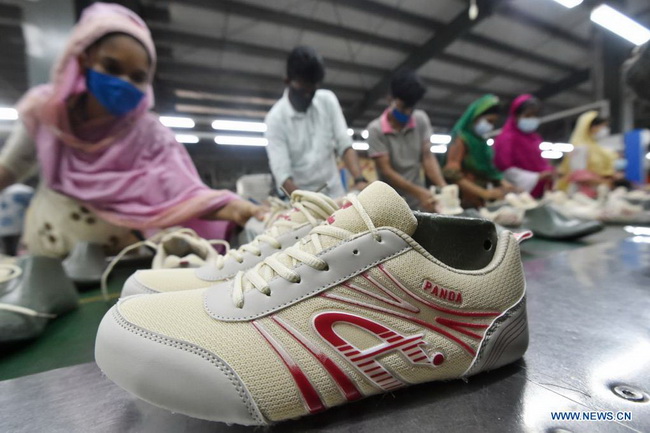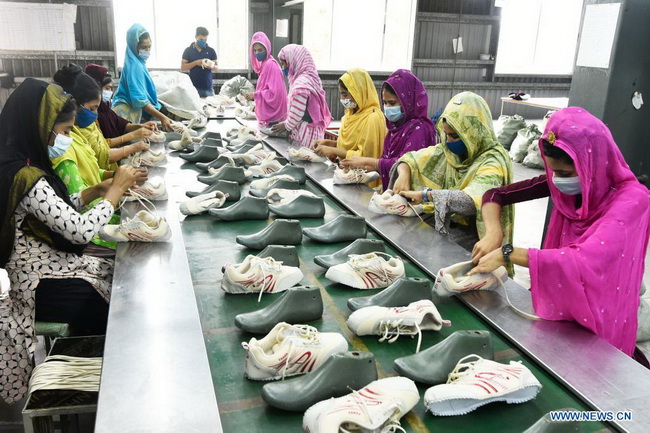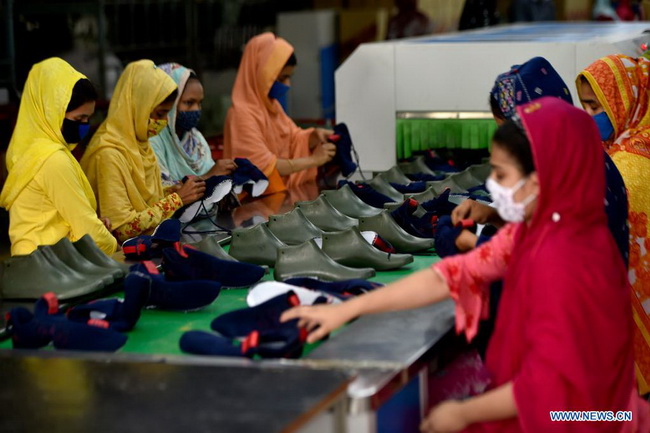Chinese shoemaker brings jobs, better life to Bangladeshi villagers
Thousands of households in the Gazipur District on the outskirts of the Bangladeshi capital Dhaka have become better off after a Chinese-invested shoemaking factory opened there in 2012.
Panda Shoes Industries Ltd. has not only brought investment and development opportunities to the Gazipur District, but also provided jobs at villagers' doorsteps.
Moreover, its shoe production has laid a special focus on the local market. That means it makes shoes for the Bangladeshi people to wear.
The factory now has the production capacity to make millions of pairs of shoes with a variety of designs. It employs people mostly from Gazipur, which has turned into a growth center from an isolated rural hinterland thanks to the shoemaking factory.
The Chinese business people have also built infrastructure facilities in the area, in addition to the shoe factory. This has contributed immensely to the transformation of local landscape, for example in the Mazukhan village.
Mosammat Mina Akhter, who has worked for about four years in the Panda factory located in the Mazukhan village, said the local residents now enjoy many kinds of facilities that have emerged after the opening of the factory.
"Since we are locals here, we have seen that before I took the job, we did not have any kind of infrastructure like paved roads and shops," she said.
Opening of the factory has helped develop this entire area, she added.
Besides locals, she said there are also people from different districts of the South Asian country working in the factory.
"They are living here and we, the local landlords, benefit from this because we're renting out our houses to them. We've immensely benefited from the establishment of the factory here," she added.
Akhter expressed hope that the factory and its surrounding areas will be developed further in the future.
Factory staff Dalia Khatun, who comes from Khulna district, some 180 km southwest of Dhaka, said her income has supported herself, her husband and several children leading a better life.
"I work here and I'm fine in all aspects, especially financially," she said. "From this company we get all kinds of benefits."
Ataur Rahman said doing business with Panda Shoes brings good fortune for him.
"Earlier I was a service holder. For the last seven years I have been doing business with Panda," he said. "I've earned profit doing this business."
He said he has been doing both wholesale and retail businesses of Panda products in Gazipur.
Cai Chunlei, general manager of the Panda factory, said about 11 years ago they came to Bangladesh to make shoes.
"We started as a small factory with less than 100 people, and now we've more than 2,000 Bangladeshi staff," said Cai, who is also vice president of the Overseas Chinese Association in Bangladesh.
He said Bangladesh, which has a population of about 170 million, is a very large market. "We're very optimistic about the Bangladesh market. If Bangladesh's economy develops further, the domestic demand of shoes will increase exponentially."
Currently, he said the company mainly targets the wholesale market in Bangladesh. "We're promoting our brand as well. Our plan is to try to establish this Panda brand within five years as a popular and lovable brand among the locals in Bangladesh," Cai added.
"We've also started to open our store online, and we're also preparing to open our outlets offline," he said, adding that Panda's business plan was disrupted by the COVID-19 pandemic last year.
For example, the business was bad with the closure of all schools in Bangladesh for already a year and possibly longer, until May 23. "When the schools are closed, it affects our sales a lot," he said.
The factory's production has however continued with strict COVID-19 prevention measures being taken. "We have also guaranteed pay to local workers and did not bring any bad influence on their lifestyle," Cai said.
To cope with the COVID-19 impact, Cai added that they need the Bangladeshi government's policy support, such as in taxation, customs, and other facilitations.
"Foreign investors like us have been in a very difficult situation during the epidemic. So if the government can give us some support in this respect, of course, this will help us," said the Chinese businessman.
"We've brought this place into something similar to a township in the past 10 years," Cai said. "It was not easy."
Panda's business will continue to expand to meet the local market demands so that Panda shoes will reach every corner of the country, he added.


